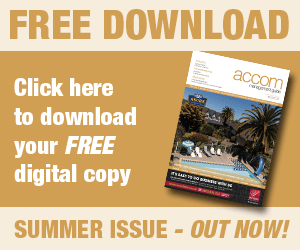Local government reforms have big implications for accommodation providers
- Details
- Published Date
- Written by Rachael Shadbolt, Sector Manager Hotels
The activities of local councils have a major impact on all accommodation providers.
Councils provide the basic infrastructure we all use, including water, sewerage and rubbish disposal. In addition to these hugely important services, councils play a major role in determining the level and quality of visitor services, the events that take place and the public money that is invested in destination promotion.
These are the activities that help attract visitors, influence how long they stay and how much they spend, as well as whether they recommend the region to others.
Councils are arguably the tourism industry's most important partners, investing in infrastructure such as museums and stadia, events and festivals, and in promotional activities through Regional Tourism Organisations and i-SITE visitor centres.
It's for this reason that TIA, on behalf of its members, is taking a close interest in the local government reforms being proposed by the Government.
New Zealand's tourism sector needs to be vitally involved in this debate. At some point it will focus on what local government activities are "core" and whether or not public sector investment in our tourism sector is truly core.
This debate will then inevitably flow on to another critical debate about whether or not current levels of public sector investment in international and domestic tourism marketing, and visitor services and infrastructure are adequate, justifiable and sustainable.
Prime Minister and Tourism Minister John Key has assured TIA that neither central nor local government investment in the visitor sector should be affected if the Local Government Reform Bill becomes law. But he also added that, as is the case now, each local government authority will need to make its own assessment as to whether tourism is core to its activities.
It is vital that tourism operators, through their representative organisations like TIA, engage with both central and local government on these issues. Such engagement needs to be immediate, cohesive and honest. Otherwise the next few months will be punctuated by the ad hoc flare-ups that have characterised recent regional public debates on proposals to tax visitors through bed taxes and other levies.
The tourism sector can clearly show the economic benefits of the visitor economy which delivers real jobs and income to many communities and regions around the country. We want to protect that investment and it is our responsibility to continually prove our case and show valuable return on public investment.
We must appreciate that public bodies have a lot of pressure on their resources and many priorities.
So let's now get stuck into the issues in front of us, work cooperatively and cohesively amongst ourselves and with our public sector partners, and together find workable solutions that meet public sector objectives and enable private sector businesses to survive then thrive.
TIA is treating the local government reforms as a priority and is making a substantial submission to the Bill. We are also raising the matters involved with a range of key stakeholders in the lead-up to the Government decision on the Bill, expected in October.


